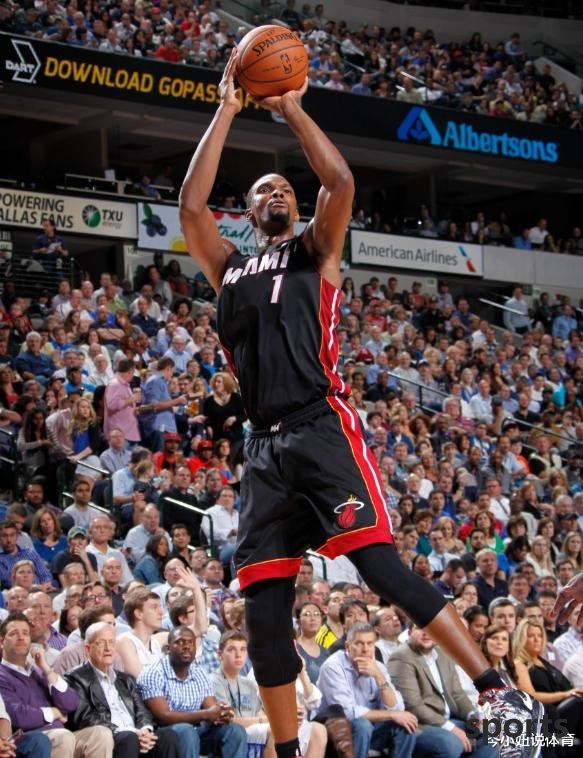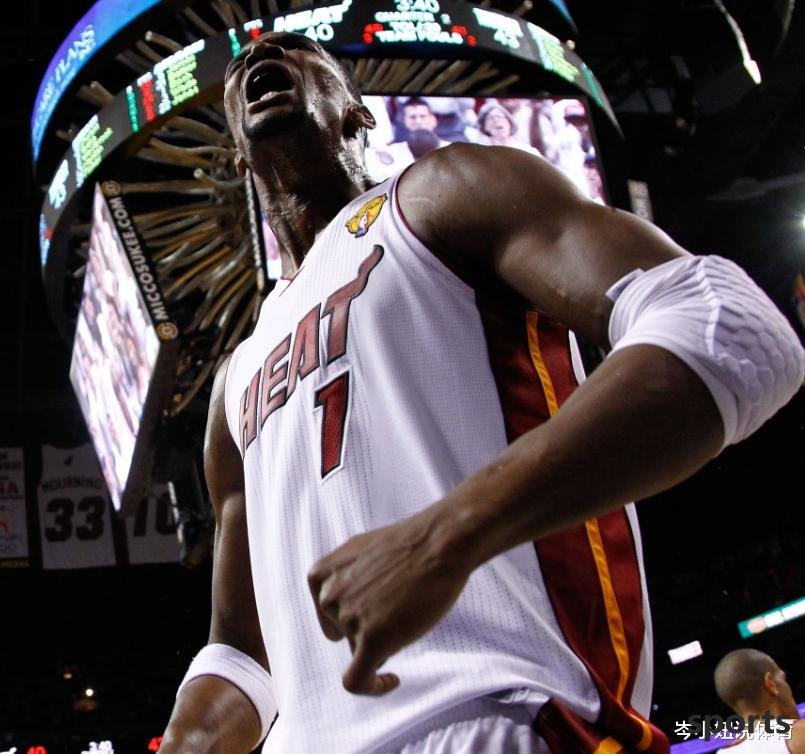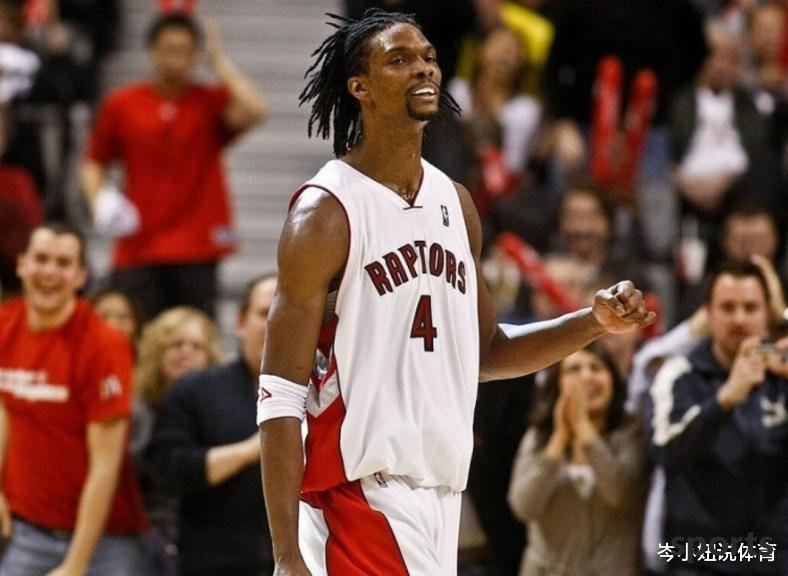Bosh is an overrated player? If he hadn t joined the Heat, he would have been the greatest player in the history of the Raptors
2:05am, 23 July 2025Basketball
On July 21, Chris Bosh's career was always accompanied by the interweaving of controversy and praise. This 2.11-meter-tall power forward was a well-deserved team core during the Raptors, but after joining the Heat, he transformed into a "three-in-one" role gap, which made many people question: if Miami was not chosen, could he become the greatest player in the history of the Raptors? To answer this question, we need to conduct objective analysis from multiple dimensions such as data, team results, and technical characteristics.
**The lone hero of the Raptors' era**
At the 2003 draft, Bosh was selected by the Toronto Raptors with the fourth pick in the first round. During the reconstruction period after Vince Carter left the team, he quickly grew into the team leader. In the 2006-07 season, the 22-year-old Bosh averaged 22.6 points and 10.7 rebounds per game, leading the Raptors to a third record in the Eastern Conference with 47 wins and 35 losses. He was selected for the All-Star for the first time and entered the second team of the All-Squad. This season is the pinnacle of his Raptors' career - the team's victory has increased by 20 games compared to the previous year, and the Nets' six games in the playoffs are still honored. At that time, Bosh showed the potential of an all-around inside: sharp attacks on the face frame, stable mid-range, fierce rebounding, and even able to carry the ball like a defender.

In the following three seasons, Bosh's data continued to rise (averages of 24.0 points and 10.8 rebounds per game in the 2009-10 season), but the team was unable to break through the first round of the playoffs. During this period, the Raptors' lineup had obvious flaws: point guard TJ Ford suffered frequent injuries, and role players such as Anthony Parker were limited in talent. Bosh had to make frequent guest appearances in the center, fighting with taller opponents. Although his personal performance was dazzling (5 All-Stars in the Raptors, second in team history and first in rebounds), the team's competitiveness ceiling finally made him choose to join the Heat in 2010 and form the Big Three with James and Wade.
**Role transformation during the Heat**
After coming to the Heat, Bosh's average per game dropped to 18.7 points and 8.3 rebounds (2010-11 season), but his role in the tactical system became more critical. In order to create breakthrough space for the Zhan and Wei combination, he developed a reliable three-point shooting range (40.6% of the three-point shooting percentage in the 2012-13 season), and frequently switched to defend outside players on the defensive end. In the legendary match of G6 in the 2013 Finals, Bosh grabbed the key frontcourt rebound and assisted Ray Allen to score a three-pointer, and then blocked Danny Green's three-point attempt in overtime, becoming an invisible hero to win the championship.

This sacrifice left Bosh with doubts from "data brushes", but professional scouts generally believe that his game influence is underestimated. ESPN's true plus-negative value (RPM) shows that Bosh's defensive RPM ranked second in all power forwards in the 2013-14 season, second only to Anthony Davis. His high-level support and spatial attributes are perfectly adapted to modern basketball concepts - this is why after James left the team in 2014, the Heat still offered a five-year maximum salary renewal of 118 million yuan without hesitation.
**Dialectical Analysis of Historical Status**
Assuming that Bosh ended up with his old Raptors, his personal honor accumulation may be richer: According to the trajectory of the 2009-10 season, his career average of 20+10 is almost locked in the Hall of Fame seat. Referring to the experience of contemporary star Dirk Nowitzki, the window for leading a single core team to win the championship is small but exists (the Mavericks defeated the Heat in 2011 to win the championship). The Raptors won DeRozan and Lowry through the draft after 2010. If Bosh is retained as the core, the competitiveness of this lineup may be stronger than the "trash brothers" period in reality.

However, Bosh's limitations are equally obvious: as an inside, he lacks Duncan's defensive dominance or Garnett's comprehensiveness; as a scorer, his back-to-body skills have never reached the top level. In the 2000s, when it emphasized physical confrontation, it was difficult for the Raptors to break through the encirclement of Eastern powerhouses such as Celtics and Magic alone. In contrast, during the Heat period, two championship rings and many key battle performances have consolidated his historical positioning as a "modern space-type inside pioneer".
**Comparison with the Raptors' history**
The discussion of the greatest players in the history of the Raptors is focused on Carter, Lowry and Leonard. Carter brought the Raptors into the public eye with his gorgeous performance, but his playoff report card was a bit thin; Lowry became the team's soul with 6 All-Stars and the 2019 championship; although Leonard only played for one year, FMVP and the championship myth are irreplaceable. Boshro stays with the team, and his cumulative data (10,470 points in total in 7 seasons) is likely to surpass Lowry (10,540 points), but lacks Carter's cultural influence or Leonard's peak height.
The more realistic positioning may be "the greatest individual performer in the history of the Raptors" - similar to Kevin Garnett during the Timberwolves. He can hit the team's first player in the history at the data level, but the ceiling of team performance will limit his historical evaluation. Interestingly, the core framework of the 2019 Raptors' championship (Siakam, Gasol Jr.) is exactly the evolutionary version of Bosh's style: an all-around inside that can shoot and support. This indirectly proves his technical forward-lookingness.
**Conclusion: The superstar reshaped by the times **
Bosh's career coincides with the eve of the NBA's tactical revolution. At the turning point of the decline of traditional inside line and the rise of space basketball, his ability to adapt to change was underestimated. Bosh during the Raptors proved that he was a qualified cornerstone for team building, while the transformation during the Heat showed the scarce value of the championship puzzle. Rather than arguing about "overvalued" or not, it is better to admit that he is a key transitioner in the evolution of basketball - as his Hall of Fame speech said: "Some people play for data, and I do it for victory." This diverse value is perhaps the most precious quality of contemporary superstars.
Related Posts
- Mori Boichi: A away game against Australia will be a hard battle. Take this opportunity to inspect more capable players
- The Clippers defeated the Nuggets 111-105 and chased to 3-3! In this battle, I thoroughly saw 5 facts
- He is 1 pound thinner than he was 6 years ago! Zion is still the third heaviest in the league at 284 pounds. His physical fitness is really amazing.
- Four strong players are introduced during the offseason! Can the old Clippers break through the first round with the mist of Katha?
- Big win! Alphabet scored 37+14, and the White Devils made their debut with 14+5. Thanks to the Rockets, he listened to Uduka’s advice.
- Jordan won 6 championships + FMVP at the peak, but he only won 4 MVPs in 6 years, and who else did he lose to?
- Degnott s four crimes, how long can six and a half men rotate? Jokiczin s value is still increasing
- Vincent: There are many new faces in the team that have not cooperated before. We are constantly working on it and will continue to make progress.
- The Wizards Novice s performance in both offense and defense, can the Canadian team easily defeat their opponents?
